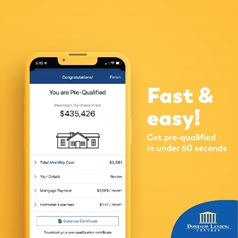Understanding Reverse Mortgages: A Financial Lifeline for Canadian Seniors

Introduction to Reverse Mortgages for Canadian Seniors
As you approach retirement, the prospect of maintaining financial stability becomes increasingly important. For Canadian seniors, reverse mortgages offer a unique opportunity to access home equity while retaining ownership of their homes. This financial tool can provide the financial flexibility needed to enjoy a comfortable retirement without the pressure of monthly mortgage payments. In this article, we'll explore how reverse mortgages work and why they might be a viable option for your retirement planning.
What Are Reverse Mortgages?
Reverse mortgages are a type of loan that allows homeowners aged 55 and older to convert a portion of their home equity into cash. Unlike traditional mortgages, reverse mortgages do not require regular monthly payments. Instead, the loan is repaid when the homeowner sells the home, moves out permanently, or passes away. This structure can provide Canadian seniors with a steady stream of income or a lump sum to cover various expenses during retirement.
How Reverse Mortgages Work
Understanding the mechanics of reverse mortgages is crucial for making informed decisions. When you opt for a reverse mortgage, the lender provides you with funds based on a percentage of your home's appraised value. The amount you can borrow depends on factors such as your age, the value of your home, and current interest rates. The older you are, the more you can typically borrow, as the loan is expected to be repaid over a shorter period.
The funds received from a reverse mortgage can be used for any purpose, offering you financial flexibility. Whether it's covering healthcare costs, making home improvements, or supplementing your retirement income, you have the freedom to decide how best to utilize the funds.
Benefits of Reverse Mortgages for Canadian Seniors
Reverse mortgages offer several advantages for Canadian seniors seeking financial security:
- Financial Flexibility: Accessing home equity without monthly mortgage payments allows you to manage your finances more effectively during retirement.
- Homeownership Retention: You remain the owner of your home, allowing you to continue living in a familiar environment while leveraging its value.
- No Repayment Until You Move: The loan doesn't need to be repaid until you sell your home, move out permanently, or pass away, providing peace of mind.
- Tax-Free Funds: The money you receive from a reverse mortgage is not considered taxable income, meaning you can enjoy the full benefit of the funds.
Considerations for Reverse Mortgages
While reverse mortgages can be beneficial, it's important to consider potential drawbacks:
- Interest Accumulation: Since no payments are made during the life of the loan, interest accumulates, increasing the total amount owed over time.
- Reduced Inheritance: The loan amount, plus interest, will be deducted from the home's sale proceeds, potentially reducing the inheritance left for your heirs.
- Eligibility Criteria: Not all homes qualify for reverse mortgages, and the amount you can borrow may be limited by your home's value and location.
Is a Reverse Mortgage Right for You?
Deciding whether a reverse mortgage is the right choice requires careful consideration of your financial situation and retirement goals. If you value staying in your home and need additional funds for retirement, a reverse mortgage might be a suitable option. However, it's essential to weigh the pros and cons and consult with financial advisors to ensure it aligns with your long-term objectives.
Reverse mortgages can be a powerful tool for Canadian seniors looking to enhance their retirement planning. By understanding how they work and considering both the benefits and potential drawbacks, you can make an informed decision that supports your financial well-being. In the next sections, we'll delve deeper into the application process and explore real-life scenarios where reverse mortgages have made a significant impact.
Applying for a Reverse Mortgage: A Step-by-Step Guide
Embarking on the journey to secure a reverse mortgage can seem daunting, but with the right guidance, it becomes a manageable process. Here’s a detailed guide to help you navigate the application process:
1. Initial Consultation
Your first step involves consulting with a mortgage broker or financial advisor who specializes in reverse mortgages. They will assess your financial situation and help determine if this option aligns with your retirement planning goals. This initial meeting is crucial for understanding the nuances of reverse mortgages and how they can provide financial flexibility.
2. Property Appraisal
Once you decide to proceed, a professional appraisal of your home will be conducted to determine its current market value. This appraisal is a key factor in calculating the amount of home equity you can access through a reverse mortgage. Ensure that the appraisal is done by a certified professional to get an accurate valuation.
3. Application Submission
After the appraisal, you’ll need to complete and submit an application to the lender. This involves providing documentation such as proof of age, property ownership, and any existing mortgage details. The lender will review your application to ensure you meet all eligibility criteria.
4. Review and Approval
The lender will assess your application, considering factors like your age, the appraised value of your home, and current interest rates. Once approved, you will receive a detailed offer outlining the loan terms, including the available loan amount and interest rates. Take the time to review this offer carefully and discuss any concerns with your advisor.
5. Receiving Funds
Upon acceptance of the offer, you’ll choose how you want to receive the funds. Options typically include a lump sum, regular monthly payments, or a line of credit. Choose the option that best meets your financial needs and retirement goals, ensuring that it provides the desired level of financial flexibility.
Real-Life Scenarios: How Reverse Mortgages Benefit Canadian Seniors
Understanding the practical applications of reverse mortgages can help you see how they might fit into your retirement planning. Here are a few scenarios where reverse mortgages have proven beneficial:
- Healthcare Costs: For seniors facing significant medical expenses, reverse mortgages can provide the necessary funds to cover treatments, therapies, or long-term care without depleting savings.
- Home Improvements: Many Canadian seniors use reverse mortgages to finance home renovations, ensuring their living space is safe and accessible as they age.
- Supplementing Retirement Income: Some retirees find that their pension and savings aren’t enough to maintain their desired lifestyle. Reverse mortgages can supplement income, providing financial peace of mind.
Navigating Potential Challenges of Reverse Mortgages
While reverse mortgages offer numerous benefits, being aware of potential challenges ensures you make an informed decision:
Managing Interest Accumulation
Interest on a reverse mortgage accumulates over time, increasing the total amount owed. It’s important to understand how this affects your home equity and plan accordingly. Regularly reviewing your financial situation can help mitigate the impact of interest accumulation.
Impact on Inheritance
If leaving a financial legacy is important to you, consider how a reverse mortgage might affect your estate. The amount owed will be deducted from the proceeds of your home’s sale, potentially reducing what is passed on to heirs. Discussing this aspect with family members can help set clear expectations.
Eligibility and Property Considerations
Not all properties qualify for reverse mortgages. Factors such as location, type of property, and its condition can influence eligibility. Ensure your home meets the necessary criteria before proceeding with an application.
Expert Advice and Resources for Canadian Seniors
Leveraging expert advice is crucial when considering a reverse mortgage. Mortgage brokers, financial advisors, and legal professionals can provide valuable insights tailored to your specific circumstances. Additionally, numerous resources are available to help you understand reverse mortgages better:
- Financial Consumer Agency of Canada: Offers information on reverse mortgages and other financial products.
- HomeEquity Bank: Provides detailed guides and tools for exploring reverse mortgage options.
- Government of Canada Budget: Updates on financial policies affecting seniors, including housing and retirement planning.
By exploring these resources and consulting with professionals, you can make an informed decision about whether a reverse mortgage is the right choice for your retirement planning. This financial tool has the potential to enhance your quality of life, providing the financial flexibility needed to enjoy your golden years.
Exploring Alternatives and Complementary Options
While reverse mortgages are a valuable resource for many Canadian seniors, exploring other financial options can provide a broader perspective on retirement planning. Understanding the full spectrum of available tools can help you make the most informed decision for your unique situation.
Home Equity Lines of Credit (HELOCs)
A HELOC is another way to access the equity in your home. Unlike reverse mortgages, HELOCs require monthly payments, but they often offer more flexibility in terms of borrowing limits and repayment structures. This option might be suitable if you anticipate needing funds sporadically rather than in a lump sum.
Downsizing
For some seniors, selling their current home and purchasing a smaller, more manageable property can free up significant funds. This option not only provides financial relief but also reduces the responsibilities and costs associated with maintaining a larger home.
Government Programs
Various government programs are designed to support seniors, offering financial aid for healthcare, housing, and daily living expenses. Exploring these programs can provide additional support and resources, complementing the benefits of a reverse mortgage.
Choosing the Right Financial Path
When considering a reverse mortgage or any financial tool, it's crucial to evaluate your personal and financial goals. Reflect on your lifestyle preferences, long-term plans, and the legacy you wish to leave behind. Engaging with trusted advisors and loved ones can offer valuable insights and support as you navigate these decisions.
Engaging with Experts for Personalized Support
At Cody Rowe - Mortgage Broker, we understand that every financial journey is unique. Our commitment to providing customized mortgage solutions ensures that you receive guidance tailored to your specific needs. With expertise in local market trends and a dedication to transparent communication, we are here to assist you every step of the way.
Whether you're exploring reverse mortgages, refinancing options, or other financial solutions, our team is ready to provide the support you need. By leveraging our extensive network of lenders and resources, we can help you achieve financial flexibility and peace of mind during retirement.
For personalized advice and to explore how our services can support your retirement planning, reach out to Cody Rowe directly at codyrowe@dominionlending.ca. We look forward to assisting you in making informed decisions that enhance your financial well-being.

